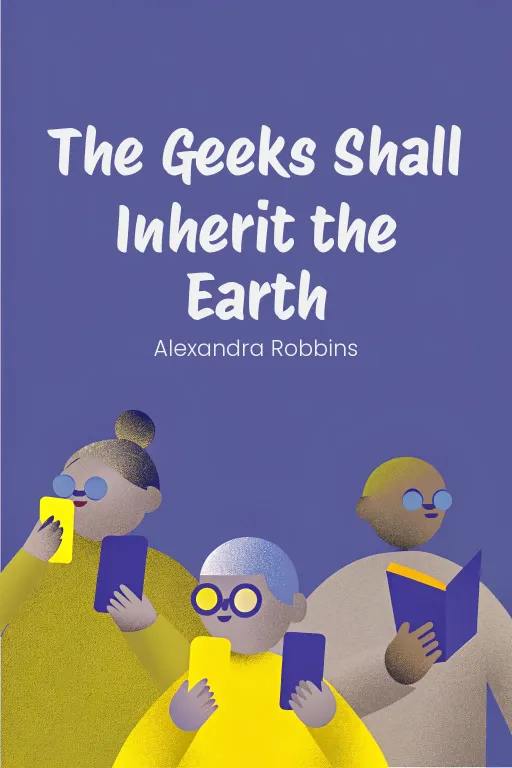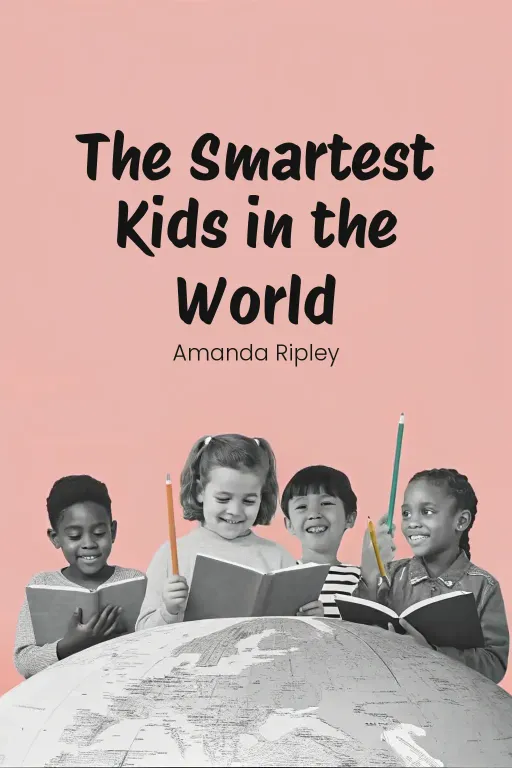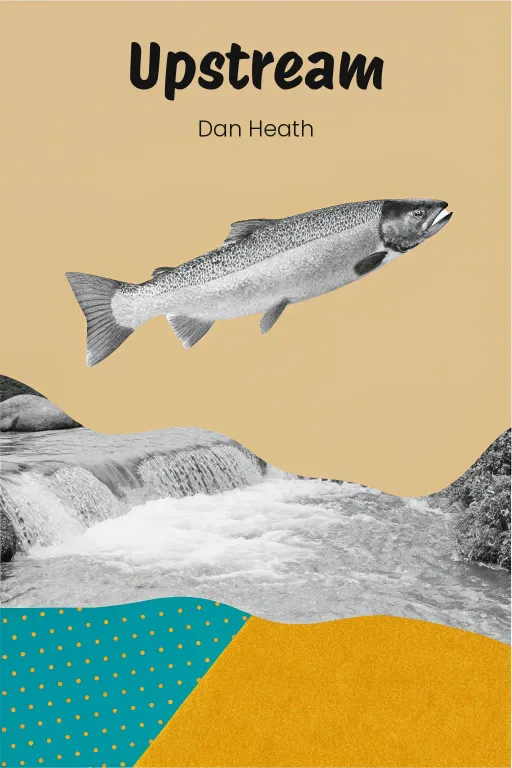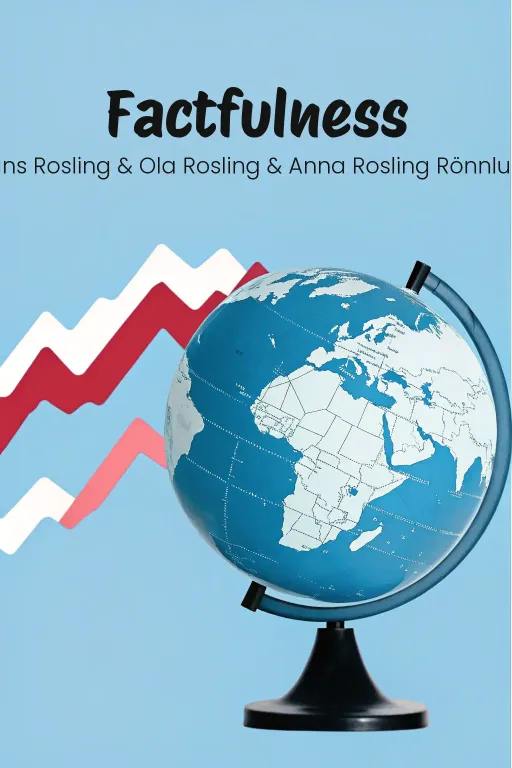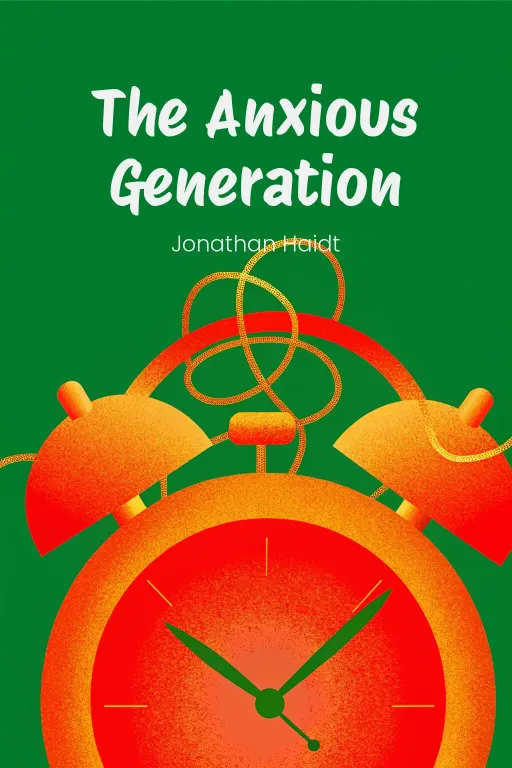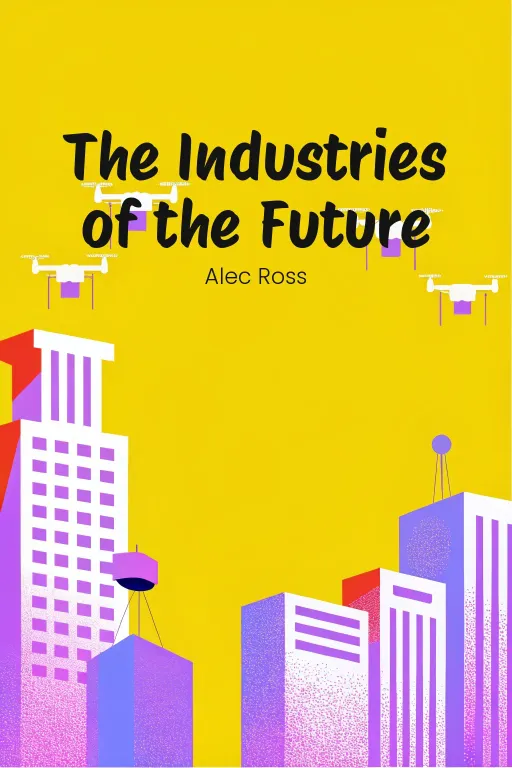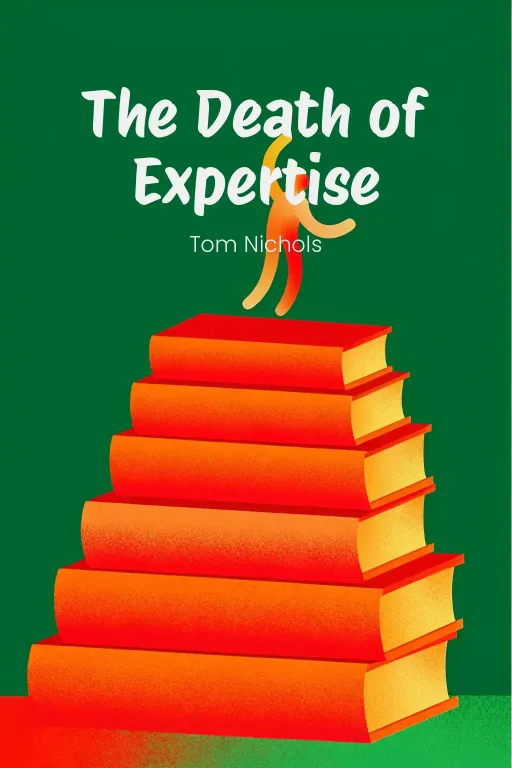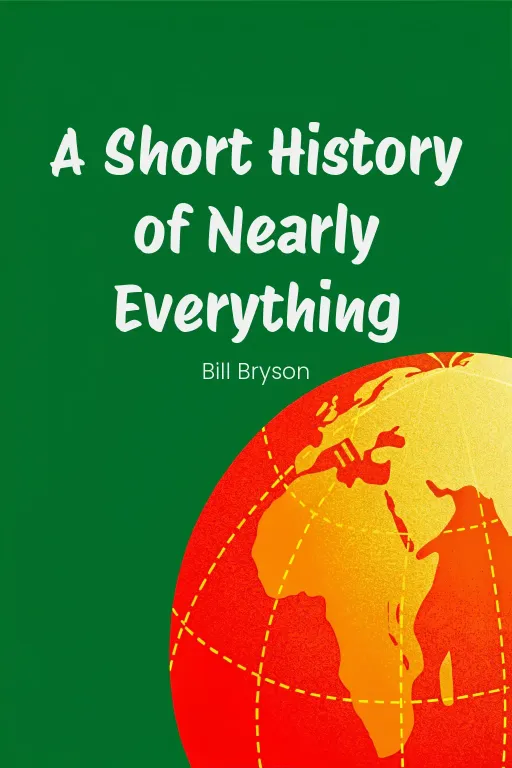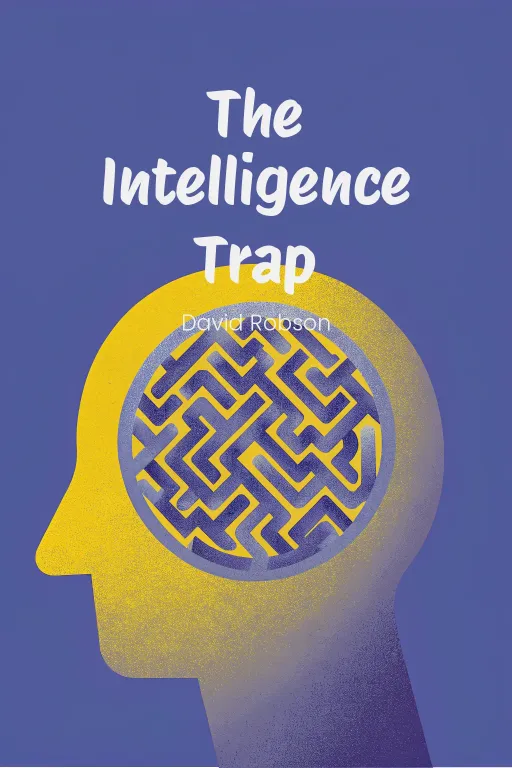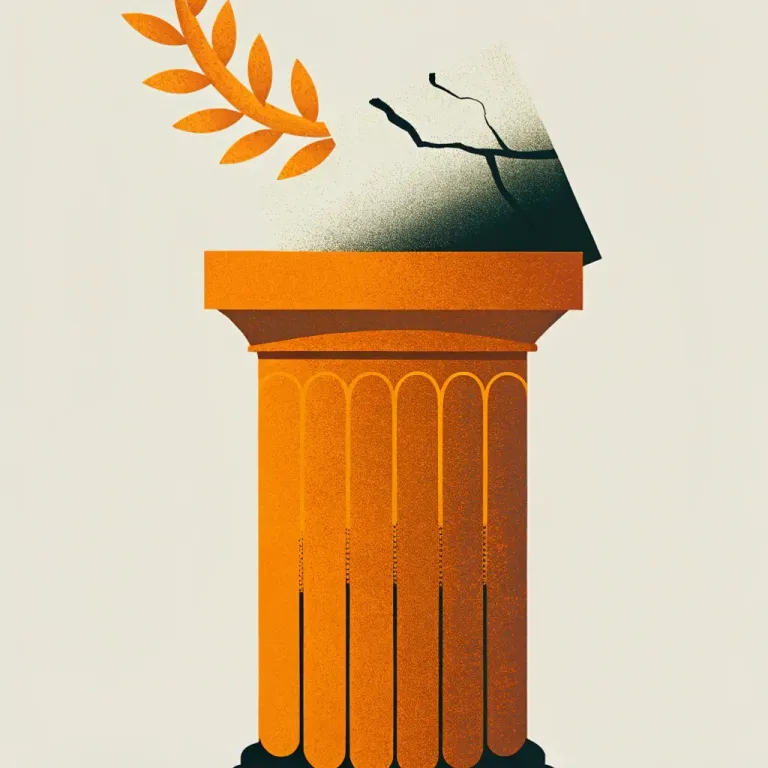
Facts vs. Feels: Why Truth Doesn't Matter Anymore
Podcast by Chasing Sparks with Alex and Justine
The Campaign Against Established Knowledge and Why it Matters
Facts vs. Feels: Why Truth Doesn't Matter Anymore
Part 1
Alex: Hey everyone, welcome back to the show! Justine, let me ask you, have you ever argued with someone who thinks they know more about, say, medicine than actual doctors? Justine: Oh, you mean like that uncle at Thanksgiving? Yeah, I know the type. They've "done their research," which usually means a quick Google search, right? Alex: Precisely! It's this whole idea that everyone thinks their opinion is just as valid as an expert's. That's the core of Tom Nichols' book, "The Death of Expertise". He really breaks down why we're seeing this growing distrust in knowledge, and how it’s actually a threat to democracy. Justine: Right, so Nichols isn't just yelling at the internet—although, spoiler alert, the internet definitely gets some flak. He really digs into the cultural, historical, and even psychological reasons behind all this. Alex: Exactly. And today, we're going to unpack it using three main ideas. First, we'll look at why society's become so skeptical of experts in general. It's not just isolated incidents of bad advice, you know? Justine: Then, we’ll dive into the fascinating, sometimes frustrating, world of the human brain – those quirks that make us overconfident, unwilling to admit we are wrong. Alex: Finally, we’re going to take a good hard look at higher education. Has it shifted from being a place of real critical thinking to more of a customer service industry for students? Justine: Alright, sounds good. So, grab your favorite beverage—or, maybe a peer-reviewed journal , and let’s unpack the surprising, troubling, and at times, kind of ridiculous death of expertise.
The Erosion of Public Trust in Expertise
Part 2
Alex: Okay, so let's dive right into why society seems so skeptical of experts these days. At its core, the book traces this distrust back to a long-standing cultural thing – anti-intellectualism. It's not exactly new, but it's morphed from a healthy skepticism into this outright rejection of expertise. Justine: Anti-intellectualism… sounds academic. Let’s break that down, shall we? It’s basically the idea that being "smart" or "intellectual" is somehow suspect. Like those "elitists" are out of touch, and everyday folks just "get it" better, right? Alex: Exactly! And the book isn’t saying experts are never wrong – of course they are. The real problem is this widespread notion that "my ignorance is just as good as your knowledge." That kind of thinking kills any possibility of talking about evidence, or complexity, or, you know, nuance. Justine: Right. And it’s not just about random people sounding off, is it? There are actual historical examples of anti-intellectualism with pretty serious consequences. Alex: Absolutely. Take the AIDS denialist movement in the 90s. It's a truly horrifying example. You had Peter Duesberg, a molecular biologist, challenging the scientific consensus that HIV causes AIDS. Now, he had a science background, yes, but his views were thoroughly debunked by the medical community. Justine: So, just to make it clear, the guy had credentials, but his theories were way out there and not supported by evidence. Got it. Alex: Exactly. But then you had political leaders like South African President Thabo Mbeki buying into those unproven ideas. Mbeki rejected antiretroviral treatments, which had been scientifically proven to save lives, and instead pushed alternative, unproven remedies. The result? Hundreds of thousands of preventable deaths. Justine: That's… disturbing. But why would anyone, especially a leader, side with a fringe theory when so much research pointed the other way? Alex: Well, the book suggests that it often comes down to distrust in the institutions behind the expertise. In Mbeki's case, there was this feeling that Western medicine was being forced on Africa, which fed into a skepticism that wasn’t just about the science, but also about cultural and political narratives. Justine: So, anti-intellectualism isn’t just a simple “ugh, experts are annoying” kind of thing. Sometimes, it’s wrapped up in complex histories – colonialism, inequality, all that stuff. Alex: Exactly! And that's why the book sounds the alarm. When feelings outweigh facts, things can get really dangerous. Justine: Let's bring this into the present a bit. We’ve all just lived through the COVID-19 pandemic – kind of hard to miss. And the same distrust of experts was everywhere, wasn’t it? On social media, at protests. People would trust some random YouTube video over public health officials! Alex: Absolutely. And the book would argue that this comes down to how the internet amplifies misinformation, which brings us to our next big topic: technology's role in eroding trust. Justine: Right, because if anti-intellectualism is the spark, the internet is basically throwing gasoline on the fire. Alex: Or, as the book puts it, the internet is like a "weaponized library." It's an amazing tool, but instead of guiding you to the right information, it throws whatever grabs your attention at you first – whether it's true or not. Justine: And, let’s face it, we humans love a good juicy headline. The book cites this crazy stat, like back in 2014 when Russia invaded Ukraine, one in six Americans couldn’t even find Ukraine on a map, but that didn't stop them from having really strong opinions about U.S. intervention. Alex: Exactly! It’s what psychologists call the backfire effect. People dig in on what they already believe, even when shown proof that they're wrong. Justine: And that’s a big reason why misinformation spreads online. It’s not just about being wrong, it’s about being stubbornly, passionately wrong. Alex: And let’s not forget search engines. The book talks about how people tend to trust the top search results without questioning where they came from. High rankings feel authoritative, but they’re often because someone gamed the SEO, not because the information is solid. Justine: Ah, right. So just because something's number one doesn’t mean it’s, you know, peer-reviewed – it could just mean someone was really good at gaming Google's algorithm. Alex: Exactly. And these effects go way beyond just casual browsing. In political campaigns, for example, misleading stories can dominate the search results, and manipulate voters with half-truths or blatant lies. Justine: It's like people are walking around thinking the internet's this neutral truth-teller, but really, it’s more like a popularity contest with a terrible referee. Alex: And that’s where the book makes the case that the democratization of information sounds great in theory, but has some serious downsides. Justine: Right, this idea that "everyone's a publisher" seems awesome, until you realize most of us aren't exactly experts. Sure, Wikipedia might be fine if you're checking who won the '86 World Cup, but for, like, geopolitical issues? Not so much. Alex: Right, the book brings up how platforms like Wikipedia rely on crowd-sourcing. And while that works for pop culture or sports, it's not so great when you need accurate, in-depth expertise. Justine: Makes sense. But doesn’t all this talk about expertise just sound like “elitism” to some people? Like, who gets to decide who is an expert? Alex: That's a huge part of the problem. The book acknowledges that experts can come across as elitist, but says rejecting expertise altogether isn't the answer. It's less about preventing access and more about appreciating the rigorous – and, yes, sometimes messy – processes that experts use to arrive at their conclusions. Justine: So, basically, instead of throwing the baby out with the bathwater, we should just… clean the water? Alex: Exactly. But that's a lot easier said than done when expertise is treated like a commodity – something we only trust when it lines up with what we already think or want to hear. Justine: Like when patients listen to their doctors about a diet plan, but ignore them when it comes to vaccines? Alex: Exactly! And the book connects this selective trust to a bigger issue – the dwindling of informed decision-making in democratic societies. Justine: And here’s the thing: democracy depends on trust, doesn't it? If people can’t agree on basic facts, how can they even begin to solve the really hard problems? Alex: They can’t! Which is why that book argues the stakes are so high. Public distrust of expertise isn’t just a little problematic… it’s dangerous.
Communication Barriers Between Experts and the Public
Part 3
Alex: So that brings us to a crucial point: the communication barriers that “really” amplify this distrust. It's not just that people are wary of experts, but experts and the public often talk past each other completely. Justine: Right. And it's more than just a language issue, isn’t it? There's a deeper psychological aspect to why these conversations feel so unproductive. Alex: Exactly. Nichols points to two main issues here: confirmation bias, which makes people fiercely protective of their existing beliefs, and the Dunning-Kruger effect, which creates this misplaced confidence based on a lack of actual knowledge. These two things combined make it incredibly difficult for genuine expertise to get through to people who might not even realize they need it. Justine: Ah, confirmation bias – where your brain just filters out anything that challenges what you already believe. This explains, like, 90% of Twitter arguments, doesn’t it? Alex: Definitely. It’s why simply presenting facts often doesn't sway people. People aren't just passive receivers of information—they actively look for and value what confirms their existing worldview. Take vaccine skepticism, for instance. Nichols uses it to illustrate just how strong this bias can be. You could have decades of research showing the safety and effectiveness of vaccines, but some people will fixate on isolated incidents, personal stories, or questionable articles they find online. Justine: Yeah, like that one time someone said they felt a bit off after a shot, and suddenly it's "Vaccines are a conspiracy!" And no amount of solid data changes their mind because that one personal account carries more weight than thousands of studies. It’s incredible. Alex: Precisely. Nichols emphasizes how personal stories often feel more tangible, more relatable than cold, hard data. When experts present charts or studies, it can feel abstract, even alienating, because it doesn’t connect on the same emotional level. Justine: And when experts try to correct those wrong perceptions… oof. People dig in even harder, because they feel attacked or belittled. Then it’s not about the facts anymore; it’s about defending your own sense of self or freedom. Alex: That’s a key point, and it leads into the second obstacle Nichols talks about: the Dunning-Kruger effect. People consistently overestimate their own knowledge, particularly in areas where they’re actually clueless. At the same time, they completely fail to grasp the extent of their own ignorance. Justine: So, basically, the less you know, the more certain you are of yourself. Which, when you think about it, explains a lot of questionable self-diagnoses. Like, "I skimmed a couple of WebMD articles, so clearly I know more than my doctor." Alex: Exactly! Nichols gives the perfect example of patients who come to their doctors convinced they've figured out the mystery of their symptoms, only to completely reject the doctor’s actual, evidence-based diagnosis. Their confidence is so inflated that they can’t even recognize the expertise right in front of them. Justine: Must be infuriating for experts. Imagine spending years mastering a field, only to have someone with absolutely no training waltz in and start debating you with half-baked trivia they picked up on Reddit. Alex: It’s frustrating, sure, but it’s also a very human thing. The Dunning-Kruger effect isn’t just about arrogance—it’s about being unaware of your own lack of knowledge. And that lack of awareness makes it tough to appreciate the value of deferring to someone who's dedicated their life to studying something you just Googled. Justine: So, to recap we’ve got confirmation bias reinforcing existing beliefs and the Dunning-Kruger effect leading people to overestimate their knowledge. It’s no wonder communication between the public and experts feels like shouting into a void. Alex: And it gets even trickier when you factor in anecdotes. For a lot of people, personal stories outweigh facts – regardless of the data backing the expert’s claims. Nichols touches on this in the context of alternative medicine. People might disregard treatments with proven effectiveness in favor of remedies supported only by personal testimonials. Justine: Right. The classic case of “My neighbor’s cousin’s friend tried this special tea and swears it cured them” somehow being more convincing than heaps of medical research. It’s baffling! Alex: And it’s seriously problematic because those personal stories, while compelling, aren’t reliable indicators of anything. Nichols explains how the emotional impact of those stories can completely override rational thought, whether it’s regarding healthcare, public safety, or even policy decisions. Justine: So, if you’re trying to convince someone deep in that frame of mind, how do you even begin to compete with that emotional connection? Saying, “Well, actually, a peer-reviewed study shows something different,” just doesn’t have the same punch as a heartfelt story. Alex: That’s the million-dollar question, isn’t it? Nichols argues that experts need to meet the public halfway—not by simplifying things to the point of being condescending, but by acknowledging the emotional and cognitive biases at play. It’s not enough to simply present the facts; experts need to connect with people’s lived experiences and emotions. Justine: So, we’re basically asking scientists to become master communicators and emotionally intelligent on top of everything else? No pressure, right? Alex: Well, it’s a big ask, but Nichols thinks it’s essential. Experts need to not only be right, but they need to be persuasive. And that means understanding how biases and emotions influence the way people process information. Justine: Which is tough, because all of this doesn’t just damage individual trust—it’s a potential disaster for democracy itself. Alex: Exactly. When experts struggle to communicate effectively and the public defaults to biases and anecdotes, we can’t have informed discussions. We can’t make sound policy decisions if a significant portion of the population distrusts the very people who have the knowledge to inform those decisions. Justine: Climate change, vaccines, economic policy... it feels like we’re trying to solve intricate puzzles with key pieces missing. Because step one – agreeing on the nature of reality – isn’t happening. Alex: That’s why Nichols is such a big advocate for education about cognitive biases. If more people understood how these mental shortcuts work, they might be more willing to question their own assumptions. Justine: You're saying we need to teach everyone to recognize when their brain is playing tricks on them. Sounds easy enough, right? Alex: Not easy, no, but definitely vital. And another solution Nichols emphasizes is storytelling—basically combining emotional appeal with factual data. Experts who can present their evidence in a way that resonates with people emotionally are going to be far more effective. Justine: Makes sense. We're hardwired to respond to stories. A bar graph might show decreasing infection rates, but a mother describing how a vaccine protected her child? That’s going to resonate more deeply. Alex: Absolutely. If we want to bridge this gap between expertise and public trust, we need a combination of empathy, education, and improved communication strategies. Only then can we start dismantling the barriers to communication and rebuild the foundation of trust that's so essential for a healthy democracy.
The Role of Higher Education in Shaping Expertise
Part 4
Alex: Building on those barriers we just discussed, let's talk about higher education's role in shaping how we view expertise. Universities – traditionally seen as these amazing places for intellectual growth – are now facing a bit of an identity crisis, wouldn't you say? We’re going to explore how higher education has shifted over time, analyze the current trends impacting it, and assess what this all means for the future of expertise. Justine: I like this. So, universities have gone from being the intellectual Hogwarts of society to…what? A luxury spa with a side of diploma distribution? Alex: In some ways, yeah, you could say that. Nichols delves into how higher education has been commodified. It’s kind of turned students into customers, and academic institutions into service providers. The focus of education has shifted, often prioritizing student satisfaction and economic outcomes over, you know, really rigorous intellectual development. Justine: Okay, so let's unpack that idea first – how did universities become, basically, businesses? What happened to all the ivory tower mystique? Alex: Well, it's largely tied to financial pressures, actually. As funding models changed and universities became more reliant on tuition revenue, the "customer is always right" mentality seeped into academia. Nichols argues that instead of challenging students to think critically and grapple with difficult ideas, institutions are increasingly focusing on retaining enrollment by catering to student preferences. And this often comes at the expense of intellectual rigor. Justine: So instead of "Welcome to four years of intensive soul-crushing analysis," it’s like, "Here's your latte and some emotional support – we'll see you at the graduation selfie station." Alex: Exactly! He points out how universities now pour resources into amenities, like elaborate dorms, fancy recreation centers, or gourmet dining options, designed to keep students comfortable and happy. Those are fine in moderation, of course, but the academic mission takes a back seat when the priority becomes creating an environment of affirmation rather than intellectual challenge. Justine: Let me guess – this emphasis on comfort trickles into grading, too? Alex: It does, which leads us to another troubling trend: grade inflation. Nichols highlights how grades are steadily rising while the quality of student output doesn’t necessarily match that increase. It’s a way to keep students and parents satisfied, but it undermines the whole point of academic achievement. Take Princeton University – back in 2004, they tried to combat grade inflation by limiting the number of A’s professors could hand out. But the policy ended up being scrapped in 2014, partially because it made people uncomfortable and upset. Justine: Wait – so the idea of earning an A through legitimate distinction made people that uneasy? Isn’t the whole point of an education to stretch ourselves, even if it's uncomfortable? Alex: Exactly! But the increasing mindset among both students and parents is that they’re paying for a product – a degree – and good grades come bundled with that. Nichols warns that this not only sends the wrong message about effort and merit but also devalues academic credentials overall. Employers start to question what an A on a transcript, or even a degree, really means. Justine: It's essentially like flooding the economy with Monopoly money – after a while, nobody trusts its value anymore. But how does this affect how students view expertise beyond the classroom? Alex: That's where things get even more concerning. When grade inflation and the commodification of education create an environment where success is expected with minimal struggle, it fosters a sense of entitlement. Nichols argues that many students now approach universities expecting to be accommodated rather than challenged. This spills over into how they engage with expertise in general – they’re less likely to respect the rigor or effort that expertise requires. Justine: And what's driving that entitlement? Are students suddenly just more spoiled, or is something deeper at play? Alex: A combination of cultural and societal factors. One big culprit Nichols identifies is overparenting. You know the term "helicopter parents" – the ones who swoop in to solve every problem for their kids? Many of these students arrive on campus having been shielded from failure or difficulty. They’re used to being affirmed and supported, so when they face challenging ideas or critical feedback, they see it as an attack rather than an opportunity to grow. Justine: And instead of rising to meet the challenge, they expect the challenge to shrink to meet them. Alex: Exactly. This ties into what Nichols describes as the rise of "safe spaces" – which, to be clear, started as vital spaces of support for marginalized students, but in some cases have expanded to mean protection from uncomfortable ideas altogether. Debates over controversial speakers or academic content often escalate into calls to remove anything perceived as threatening. Justine: Which is a slippery slope, right? Universities are supposed to be places where ideas – especially the hard, messy, uncomfortable ones – are hashed out. If we shut that down, what does that say about our capacity to engage with complexity in the real world? Alex: That’s precisely Nichols’ concern. By focusing too much on comfort and avoiding conflict, universities may inadvertently stifle the kind of intellectual growth and resilience that's needed to grapple with challenging, even uncomfortable, realities. Justine: And let’s not forget societal expectations. These days, there’s this overwhelming pressure to go to college, whether or not it's the right path for an individual. Seems like half the people at university are there because they feel like they “have” to be, rather than out of genuine intellectual curiosity. Alex: So true. Nichols points out how this normalization of college attendance dilutes the academic environment. Students who aren’t particularly interested in rigorous scholarship are funneled into a system that prioritizes high enrollment over intellectual pursuit. The result? Degrees are treated more as checkboxes than as symbols of expertise. Justine: Which begs the question: If universities are churning out graduates without the skills or respect for expertise, what does that mean for society at-large? Alex: It means we're eroding the very trust that expertise relies on. Nichols warns that if academic credentials lose their credibility, it becomes harder for experts in any field to assert their authority. Over time, the concept of expertise itself gets devalued. People won’t respect a doctor, or a scientist, or any professional if they view them as no more skilled or disciplined than the next person. Justine: And this isn’t just bad news for universities. It’s bad news for democracy, innovation, and progress as a whole. Alex: Exactly. Nichols is essentially saying that universities are a microcosm for how societies cultivate and respect intellectual authority. If these trends in higher education continue unchecked, the ripple effects across public trust, informed policymaking, and even problem-solving will be catastrophic. Justine: So what’s the solution? Are we talking about a complete rehaul – scrapping the comforts, the grade inflation, the "customer service" model? Alex: Not necessarily scrapping everything, but Nichols is adamant that we need to return to the principles of intellectual rigor, critical thinking, and embracing difficulty in higher education. It’ll mean reshaping how universities define success – not by enrollment numbers or student satisfaction surveys, but by fostering genuine intellectual growth. Only then can higher education reclaim its role as the bedrock of expertise.
Conclusion
Part 5
Alex: Okay, so to summarize, Tom Nichols in The Death of Expertise gives us this pretty stark view of what happens when anti-intellectualism, our own biases, and a sort of weakening of higher education all come together . He’s “really” warning us that this growing distrust of experts isn't just some weird cultural thing—it’s actually a real threat to making smart decisions, having real discussions, and, you know, even how our democracy works . Justine: Exactly . We’ve been talking about how this skepticism toward experts has been building for a while, but it’s definitely being made worse by all the misinformation online and a higher education system that sometimes seems more interested in keeping students happy than actually challenging them . You throw in things like the Dunning-Kruger effect, or just our tendency to believe what we already agree with, and it’s no wonder experts are having a tough time being heard . Alex: Right, and Nichols isn’t saying experts are perfect or anything—not at all . But he makes a “really” good point about how just totally ignoring expertise isn’t just wrong, it’s actually risky . If we don’t value the knowledge and work that goes into solving, you know, complicated issues, we only leave ourselves with stories based on feelings, wrong information, and what we personally believe . Justine: Which means it’s up to us, doesn't it ? Nichols is asking both the public and the experts to step up their game . For the public, that means being humble enough to admit what we don’t know and actually looking for solid evidence . For the experts, it’s not just about being correct, but, you know, about communicating in a way that people actually understand and connect with . Alex: Totally . It’s a two-way street, and rebuilding that respect is going to take effort from everyone—whether that’s by focusing higher education back on actual learning, teaching critical thinking, or just being open to those tough, maybe awkward conversations . Justine: So, the bottom line ? Expertise might be having a hard time right now, but it’s not gone yet . The real question is: are we ready to put in the effort to bring it back ?
